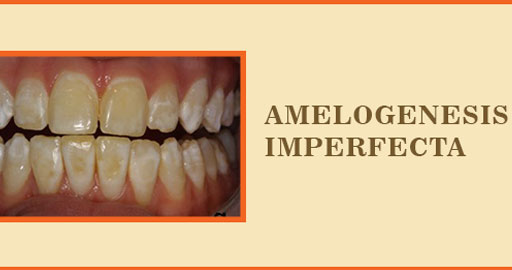
Amelogenesis Imperfecta, Symptoms, Causes, and Treatment
A healthy smile goes a long way in improving a person’s confidence. However, issues such as Amelogenesis Imperfecta can occur in your mouth causing damage to the enamel making it brittle and sensitive.
In this blog post, we will understand everything about Amelogenesis Imperfecta including its symptoms and causes. We would also address Amelogenesis Imperfecta treatment options-the restorative ones and advanced treatment ones- that can rebuild enamel to rehabilitate patients’ teeth.
Understanding Amelogenesis Imperfecta
Amelogenesis imperfecta is a tooth development disorder. This condition causes teeth to be unusually small, pitted or grooved, brittle, discolored, and prone to rapid wear and breakage. These defects can affect both primary/deciduous (baby) teeth and permanent (adult) teeth.
Types of Amelogenesis Imperfecta
There are several types of amelogenesis imperfecta that vary in characteristics. Some common types of AI are as follows:
Type 1: Hypoplastic Amelogenesis Imperfecta:
- The enamel is characterised by failure of mineralization resulting in extreme thinning of the enamel.
- It can range from pits and fissure to complete absence of the enamel, which can further lead to abnormal contour and absent interproximal contact points
Type 2: Hypomaturation Amelogenesis Imperfecta:
- Enamel is of normal thickness but is soft and poorly matured.
- Teeth may look opaque, discolored, or mottled and are prone to chipping.
Type 3: Hypocalcified Amelogenesis Imperfecta:
- Enamel is thick but poorly mineralized and soft.
- Teeth often appear chalky white or yellow and wear down quickly.
Type 4: Mixed Type AI:
- Combines features of hypoplasia, hypomaturation, and hypocalcification.
- Teeth exhibit a combination of enamel defects, varying in severity.
What Causes Amelogenesis Imperfecta?
Amelogenesis Imperfecta is largely due to genetic mutations that interfere with the enamel formation process. It may be inherited from one or both parents.
In a few cases, it is the result of spontaneous mutations which have no family history. These gene mutations interfere with normal enamel development and lead to characteristic manifestations of an anomaly in enamel thickness, hardness, or mineralization.
Amelogenesis Imperfecta Presentation
- Abnormal Tooth Color: Yellow, Brown, or pitted.
- Tooth Sensitivity: Your teeth would be extremely sensitive to hot and cold.
- Brittle Teeth: Your enamel would break or chip off very easily which mostly causes other dental diseases.
- Irregular Tooth Shape: The shape of the teeth would not be normal and may have rough surfaces.
Complications of Amelogenesis Imperfecta
Some of the complications and risks associated with amelogenesis imperfecta include:
- Cracking and chipping of tooth
- Dental caries (dental cavity)
- Buildup of Plaque and Calculus
- Large or swollen gums (gingival hyperplasia)
- Infection of the gum and bone surrounding teeth
Amelogenesis Imperfecta Treatment
Advanced Dental Treatments
Preventive Care: Regular dental visits, fluoride treatments, and sealants to protect teeth.
Restorative Treatments:
- Mild cases: Composite bonding, whitening.
- Moderate cases: Veneers, crowns.
- Severe cases: Full crowns, overdentures.
Orthodontics: Braces or aligners for misalignment.
Sensitivity Management: Desensitizing toothpaste, fluoride gels, nightguards.
Long-Term Maintenance: Regular cleanings, oral hygiene, and updating restorations.
Holistic Approach: Collaboration between dentists, specialists, and genetic counseling if inherited.
FAQs:
Question 1: What is Amelogenesis Imperfecta (AI)?
Amelogenesis Imperfecta is a rare genetic disorder that affects the enamel development of the teeth, causing various dental problems.
Question 2: Is Amelogenesis Imperfecta hereditary?
Yes, Amelogenesis Imperfecta is mostly an inherited disease. It results from genetic mutation and can be passed down the generations.
Question 3: What are the general symptoms of Amelogenesis Imperfecta?
General manifestations include yellowish or brown color of the teeth, hypersensitivity of the teeth, brittleness that results in easy chipping, and distorted shape of the teeth.
Question 4: Is Amelogenesis Imperfecta curable?
There is a possibility of treatments in order to reverse cosmetic and functional defects resulting from Amelogenesis Imperfecta. This is possible through dental bonding, veneers, crowns, orthodontics, and preventive care.
Reach out to your nearby Clove Clinic immediately or book online now and start unlocking that beautiful smile of yours!
Leave a Reply
Leave a Reply
Explore More Similar Posts
Explore More Blogs


Leave a Reply